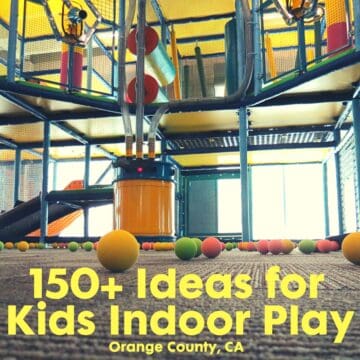Inspired by social media feeds of parents who are talking about "Trying to entertain the kids" - I thought I'd attempt to tackle this hot topic in parenting.
You may not even realize it's a hot topic until you think about this week and what you did to "entertain" your children. Did you happen to:
- Hand your kids a screen or switch on the TV for them?
- Pay for camp?
- Plan out an entire craft activity and lead every step?
- Go to a planned event or activity?
- Consult community calendars to plan out your week based on organized commercial events that promote consumption or purchases (like Kids Eat Free days, National Ice Cream Day free treats, or store openings)?
- Schedule "school-type" activities into the day of a child under 5 years old?
- Drive the kids to their organized sport practice or competition?
- Sit through a dance or music class?
- Engage your children in educational lessons or tutoring?
- Take them to childcare where video games are available or activities are programmed?
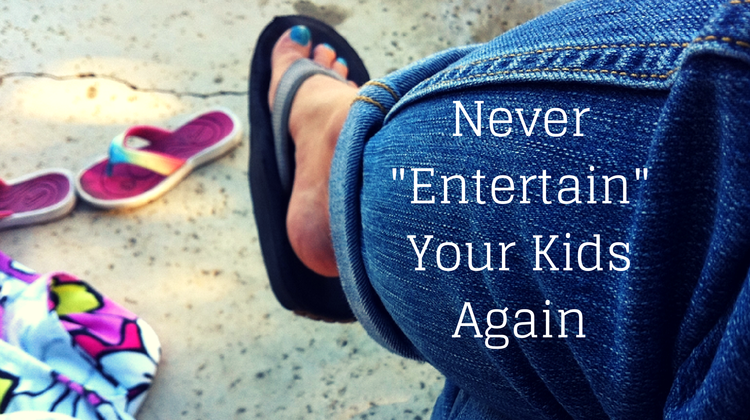
I think many parents can answer "yes" to at least one of those questions, if not all of those above. My friend and play advocate, Bethe Almeras, calls this the Cruise Director mentality where parents feel the pressure to schedule every minute of every day for their children. The children even seem to need it by regularly asking "What are we going to do next?" and the adults in their life deliver with classes, sports, tutoring, field trips, summer camps, or screen time.
But at what cost?
- Your sanity?
- Their creativity and resilience?
Take a moment and ask yourself, can kids entertain themselves? (Didn't you entertain yourself when you were a kid? As a kid, how many hours of your week were programmed with structured activities like the ones above? How many hours a week were down time for you? How did you turn out?)
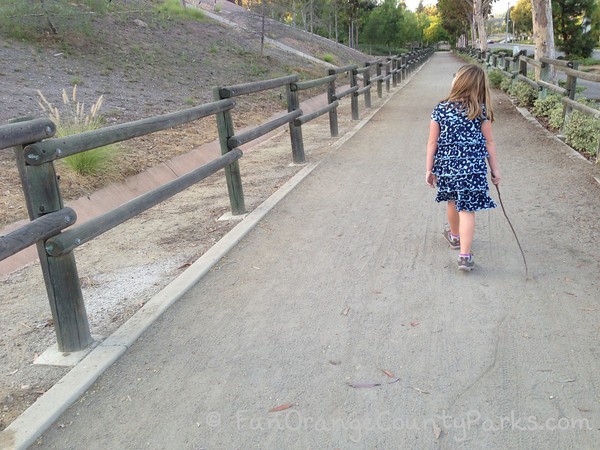
Slow Down!
Did you know there's a whole movement called Slow-Parenting?
Slow parenting is about bringing balance into the home. Children need to strive and struggle and stretch themselves, but that does not mean childhood should be a race. Slow parents give their children plenty of time and space to explore the world on their own terms. They keep the family schedule under control so that everyone has enough downtime to rest, reflect and just hang out together. They accept that bending over backwards to give children the best of everything may not always be the best policy. Slow parenting means allowing our children to work out who they are rather than what we want them to be." - Quote from Carl Honore in What is Slow-Parenting? by Lisa Belkin, Motherlode Blog NY Times, 2009
Some examples of unstructured activities or ideas for young kids:
- Spending time with grandparents - and see what happens
- Spending time at the park - and see what happens
- Providing down time with crayons and paper - and see what happens
- A pile of books or an unhurried trip to the library - and see what happens
- A sandbox and shovel - and see what happens
- A paintbrush and water - and see what happens
- Chalk and a sidewalk - and see what happens
Get the idea? I get so excited about play and the seeing what happens part! It's never the same and the kids ALWAYS amaze me.
Need ideas for what this looks like with teenagers?
- 5 Ways to Lure Teens Off the Couch and Outside (NWF Blog)
- The Best Playgrounds for Older Kids Aren't Playgrounds at All (from me!)
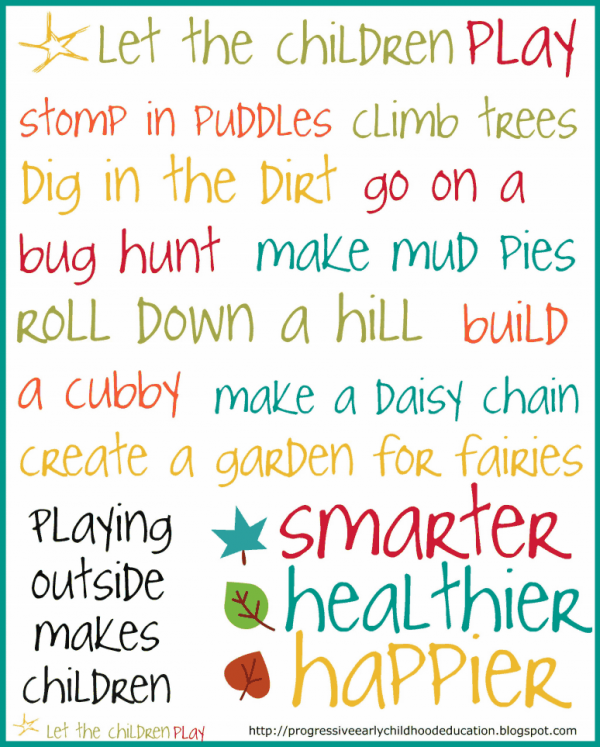
Nothing is Something
Take my word for it that kids will benefit from your conscious decision to step back and let THEM lead play. Jenny Kable of Let the Children Play (creator of the awesome artwork above) and Teacher Tom serve as two resources to see this in action.
Your kids WILL get much of the education out of free play that you are trying to provide with structured activities. Just seek out a balance of structured to unstructured. It's natural for kids to entertain themselves - we just need to let them.
Don't believe me? Read this article from The Atlantic on Why Free Play is the Best Summer School? Or watch this video about Prescription for Play. By the end, you will feel completely empowered as a parent for those times when you decide to choose free play over structured activities (which I highly encourage and hope you choose often). Even two Harvard professors agree that the key to future success is PLAY with their opinion piece called Want to get your kids into college? Let them play.
So what are these 2 simple strategies?
Simple Strategy #1: New Outdoor Places
Find a new outdoor place - and let the kids initiate their play. [You just stand back and observe. If they need encouragement, start them off with a story . . . Hmm, I wonder what this could be? A house? A restaurant? Or see that rock over there - what do you think should it be?]
I receive so many requests from parents to write a post on "What to Do When We Get There?" Guess what? I'm not the one with the answer to that. The kids will decide! Just let them pretend play and see what happens.
That's it. It's so incredibly simple. Have you ever been to a new park or had that experience of "firsts"? Everything is more exciting somehow and it sets off your inner explorer. If you don't let your kids play a lot of video games or see a lot of TV, you'll notice their pretend play is based more on books and things they've watched you do at home.
If you are in Orange County, CA - visit my interactive park map to get you started. The best part of this strategy is that you will get the added benefit of getting away from distractions (keep your phone in your pocket) and your own schedule to spend special one-on-one time watching your child. Be in the moment. There's a word for this: mindfulness.
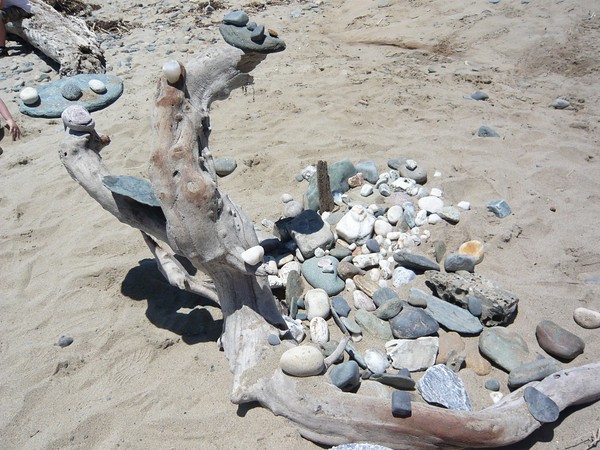
Simple Strategy #2: Loose Parts Play
A simple set of wooden blocks, cardboard boxes, a pillowcase full of themed toys, a suitcase full of dress-up clothes. A pile of rocks. A bundle of sticks. Whatever is age-appropriate and encourages imaginative play! Bella Luna Toys website and Sarah Baldwin's discussion of choosing toys is a source of inspiration for me.
Whether you bring the parts to a park or just play with them in the backyard or living room - that's all you have to do. Your kids will take care of the rest.
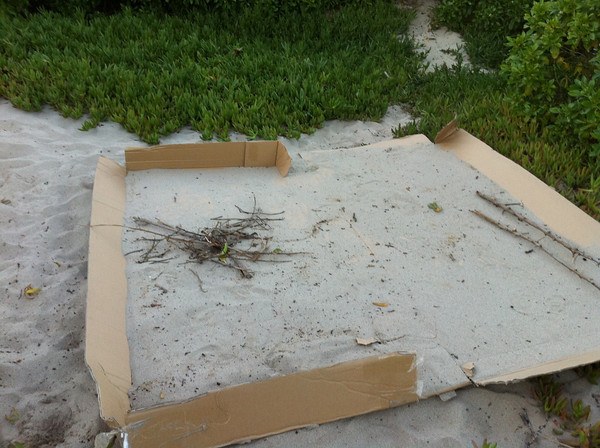
Go Play!
Your patience and encouragement are the keys to making these strategies work! You provide your kids with the appropriate places and the props - and they have everything they need to entertain themselves.
Want to learn more? Google these terms, or read these books, or consult these resources:
- Slow Parenting
- Loose Parts Play
- Fed Up with Frenzy: Slow Parenting in a Fast-Moving World by Susan Sachs Lipman
- Last Child in the Woods by Richard Louv
- Free to Learn: Why Unleashing the Instinct to Play Will Make Our Children Happier, More Self-Reliant, and Better Students for Life by Peter Gray
- Play Outside! (100s and 100s of ideas!)
- Powerful Reasons to Justify Your Play (lots more reasons WHY you should choose free play)
Or read my Hummingbird Parenting blog series which aligns perfectly with the parenting strategies in this post:
- Hummingbird Parenting Explained
- How to Be a Hummingbird Parent
- Sidewalk Hiking
- The Joy of Stairs
- Places for Babies to Play
- Flat Biking
Originally published in August 2014.




